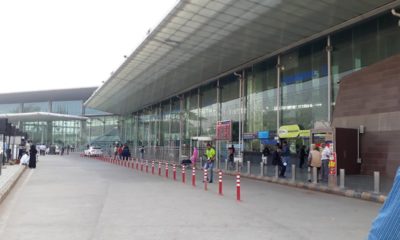World
Bangkok blasts ‘worst attack on Thailand’

Bangkok: Thai Prime Minister Prayuth Chan-ocha has said the bombing of a shrine in here that claimed 20 lives, including those of three foreigners, and injured 125 others was the “worst ever attack” on the country, a media report said on Tuesday.
“This is the worst incident that has ever happened in Thailand,” Prayuth said.
“There have been minor bombs or just noise, but this time they aim for innocent lives. They want to destroy our economy, our tourism.”
On Monday, at about 7.00 p.m., an improvised explosive device (IED) went off near the near the Brahmin statue at the Erawan Shrine at the Ratchaprasong intersection in central Bangkok, packed with evening rush-hour commuters and tourists, many of whom were visiting the shrine, the Bangkok Post reported.
On Tuesday morning, police revised the toll from the blast from 27 to 20 including two Chinese and one Filipino, citing confusion at the scene.
With a powerful flash caught on security video and a boom heard blocks away, the blast from the IED scattered body parts across the intersection, blasted windows and destroyed motorbikes and vehicles.
“The perpetrators will be brought to justice,” the prime minister added.
However, authorities have said that it is too early to determine the possible motives or who the perpetrators may be.
The attack has received widespread condemnation including UN Secretary General Ban Ki-Moon, the European Union (EU) and the US.
World
Lockdowns in China Force Urban Communities to Defy Censorship and Vent Frustration Online

Shanghai’s rich middle class is leading a wave of online dissent over the strict and prolonged lockdowns imposed in various parts of the country. Chinese internet censorship is struggling as patience is wearing thin in many urban centers, coming up with creative forms of online protests.
Social Media Posts Revealing Lockdown Tension in Shanghai
Drawn-out lockdowns are nothing new in China as authorities insist with the nation’s zero-Covid policy since the start of the pandemic. Currently over This time around, however, metropolitan areas like Shanghai are increasingly difficult to keep quiet, given that its more than 25 million residents have seen weeks of total isolation along with food shortages and many other service interruptions.
Dozens of towns and reportedly over 300 million Chinese citizens have been affected by lockdowns of different severity. As expected, urban netizens have been most outspoken over their difficulties by finding creative ways to get around state censorship and bans placed on topics, news comments and spontaneous campaigns.
Shanghai residents have been using mobile proxies and hijacking seemingly unrelated hashtags to talk about healthcare issues, delivery failures and the overall severity of their situation. The “positive energy” that the Chinese government wants to transmit during the recent prolonged series of lockdowns does not come naturally to those counting food supplies and online censors are working hard to filter words, trending topics and undesired social media sharing.
WeChat groups and message threads are under constant monitoring. Posts questioning the zero-Covid approach have been quickly deleted, including by leading Chinese health experts like Dr. Zhong Nanshan. Video footage is soon censored and protests and investigations are quickly made to disappear.
Where this has not worked, officials have exposed banners with warnings and outright threats like “watch your own mouth or face punishment”, while drones have been patrolling the city skies. Yet, if anything, this has led to further tensions and unspoken confrontation with Shanghai’s educated and affluent middle class.
Creative Online Solutions Harnessing Civic Energy
Announcements by Chinese social media that they would be publishing the IP addresses of users who “spread rumors” have not helped either. Tech industry research has shown that much of Asia’s tech-savvy population has a habit of using mobile proxies and other privacy tools, quickly finding workarounds to browse the internet freely and talk to the world about the hottest topics.
The sheer volume of forbidden posts is already a challenge for the very censorship system, experts explain. Unable to track all trending hashtags, state workers overlook topics that speak about the US, Ukraine or other popular news. Linking human rights elsewhere to their situation, Chinese online dissidents establish their informal channels and “hijack” the conversation to share personal or publicly relevant information about the Covid suppression in their town.
Sarcastic and satirical posts still dominate. Others hope to evade the censors by replacing words from famous poems or the national anthem. One thing is certain – social media, when harnessed with the right creativity, has proven its ability to mount pressure on the government in even some of the most strictly controlled tech environments like China.



















